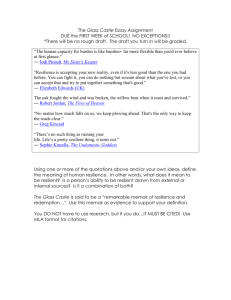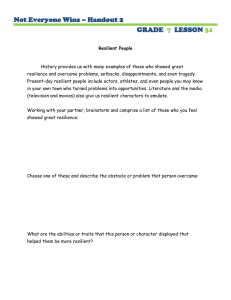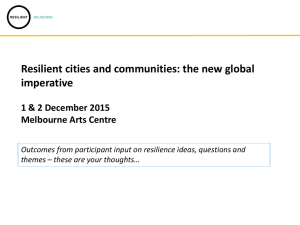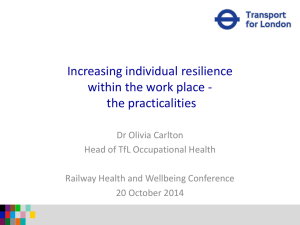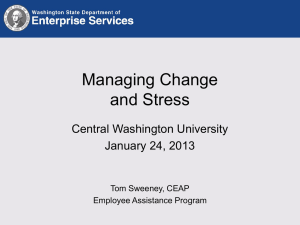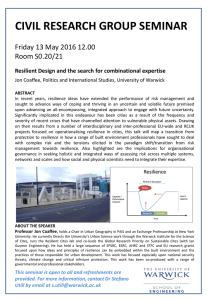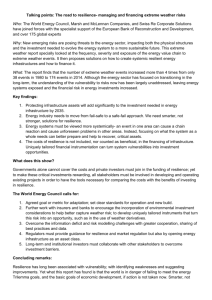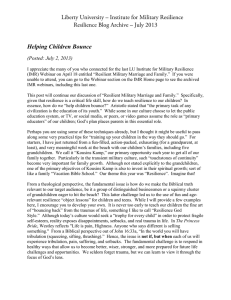Key competencies for Strategic Managers With links to learning opportunities and further information
advertisement
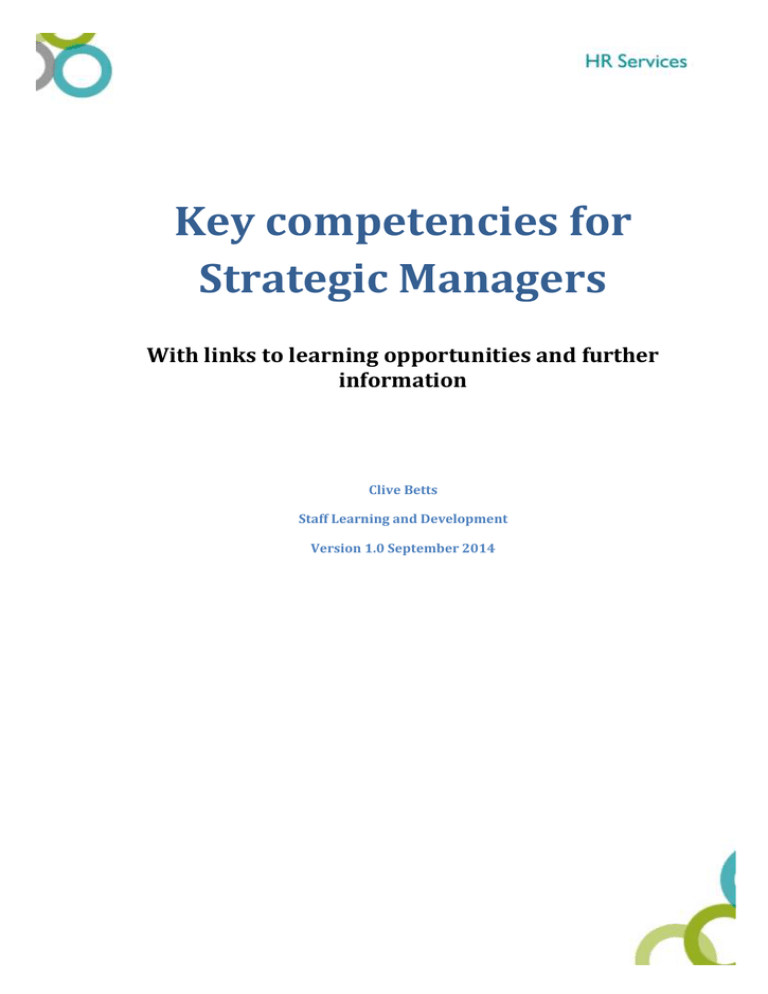
Key competencies for Strategic Managers With links to learning opportunities and further information Clive Betts Staff Learning and Development Version 1.0 September 2014 Page |0 To be resilient you must be able to: asses own resilience (mental toughness) understand how resilience can be developed plan to improve own resilience Typically these will involve the following information, steps, tools and techniques: where we can influence and lead change to minimise negative workplace stressors how our leadership and communication styles can foster resilience and effectiveness in our areas of responsibility and beyond key systemic issues which need to be addressed at more strategic levels thinking styles and behaviours which can help people become more resilient key stressors in the workplace which they can positively influence how to reduce negative impacts of stress key values & behaviours to foster a climate of resilience and effectiveness Learn about/develop/refresh this capability: Wellbeing: building resilient and effective organisations workshop (part of the Strategic manager programme); You e-Develop resources To empower your staff and delegate authority you must be able to: understand the benefits of delegation delegate effectively in the workplace improve your own ability to delegate and empower others understand the specific responsibilities of strategic managers in enabling the University to achieve its goals understand how communication and interpersonal relationships affect managerial performance Typical these will involve the following information, steps , tools and techniques: constraints and benefits of empowerment define and distinguish between authority, power, responsibility and accountability Tannenbaum & Schmidt; the ‘Five Levels of Delegation'; James MacGregor Burns models of delegation and their application the urgent/important matrix the levels of management within the University and the roles and responsibilities at each level the benefits of networking and the skills required the difference between management and leadership; John Adair’s Core Functions of Leadership model the range of management styles including one systems approach and one contingency approach the work of Albert Mehrabian the skills of questioning, active listening, non-verbal communication and feedback Learn about/develop/refresh this capability: Becoming a strategic manager by empowering your staff workshop (part of the Strategic manager programme); You e-Develop resources Page |1

